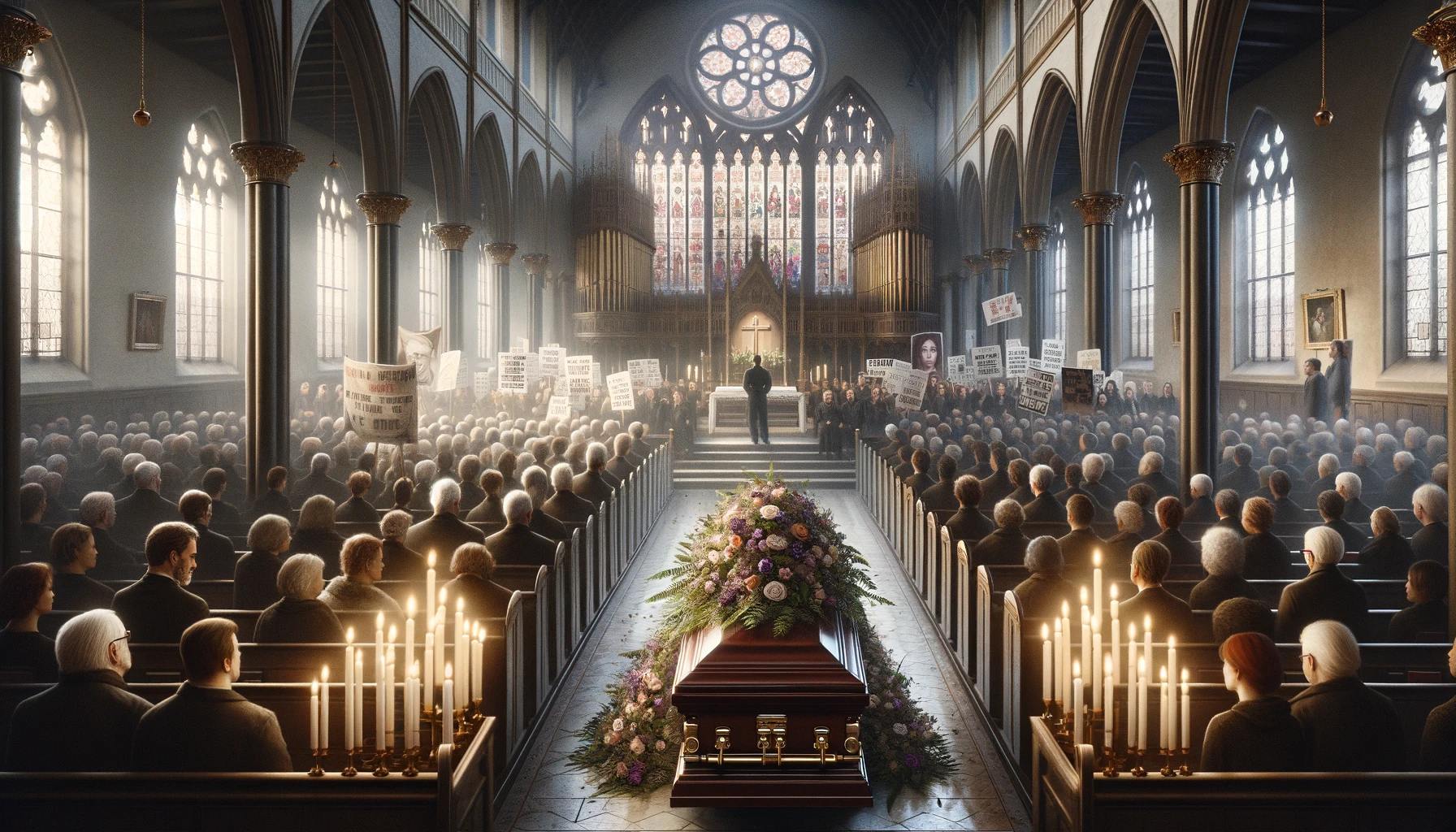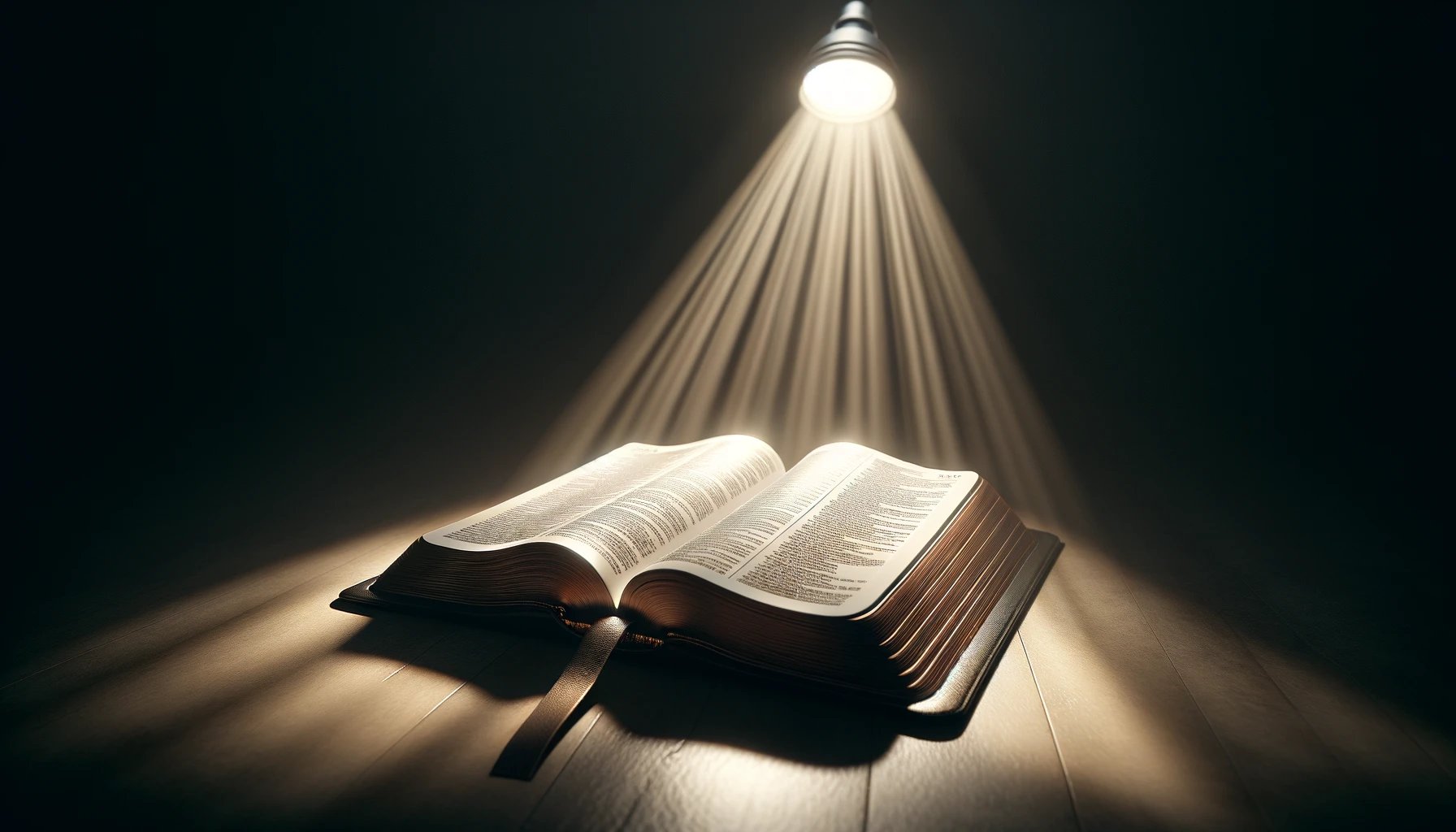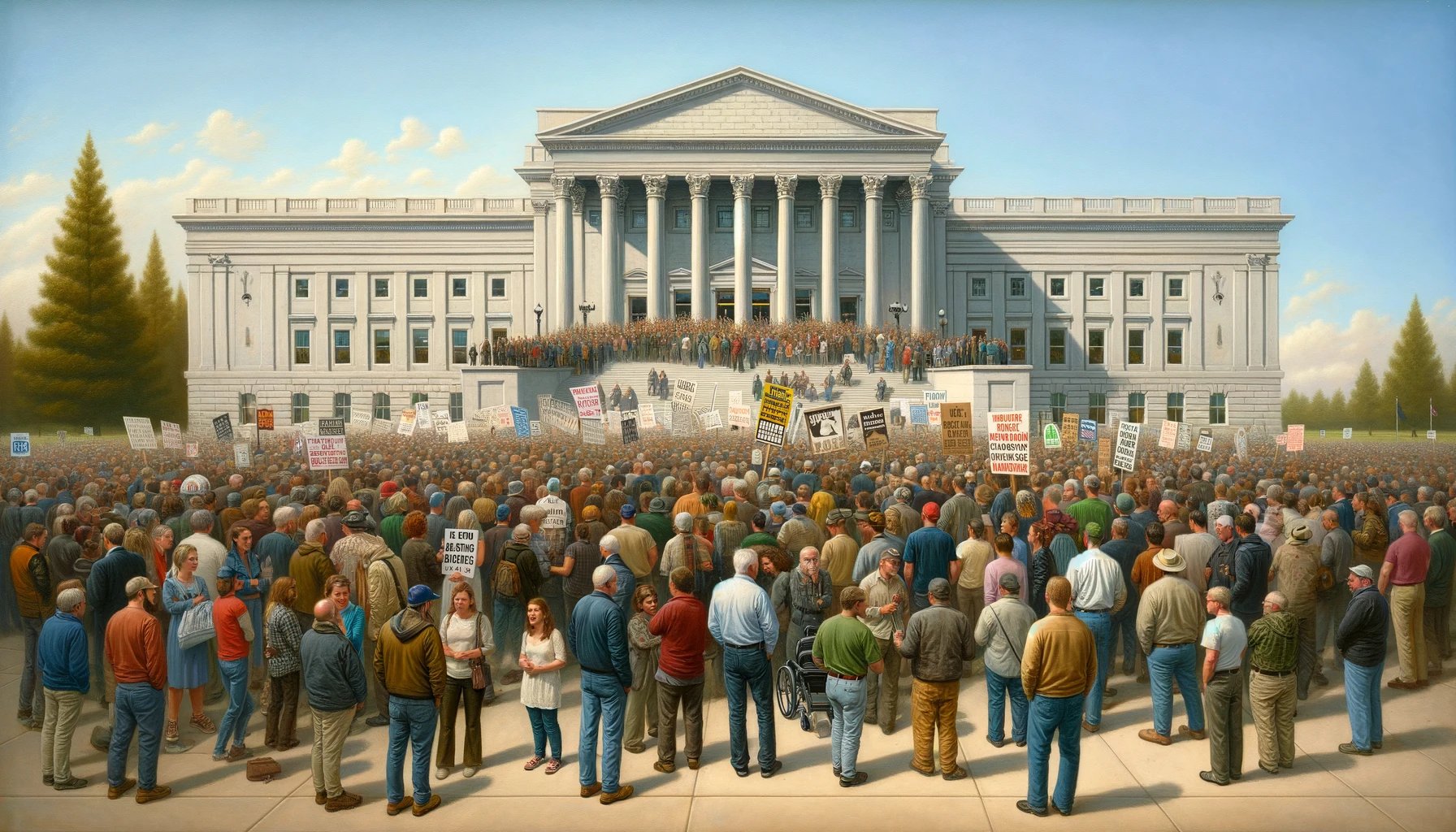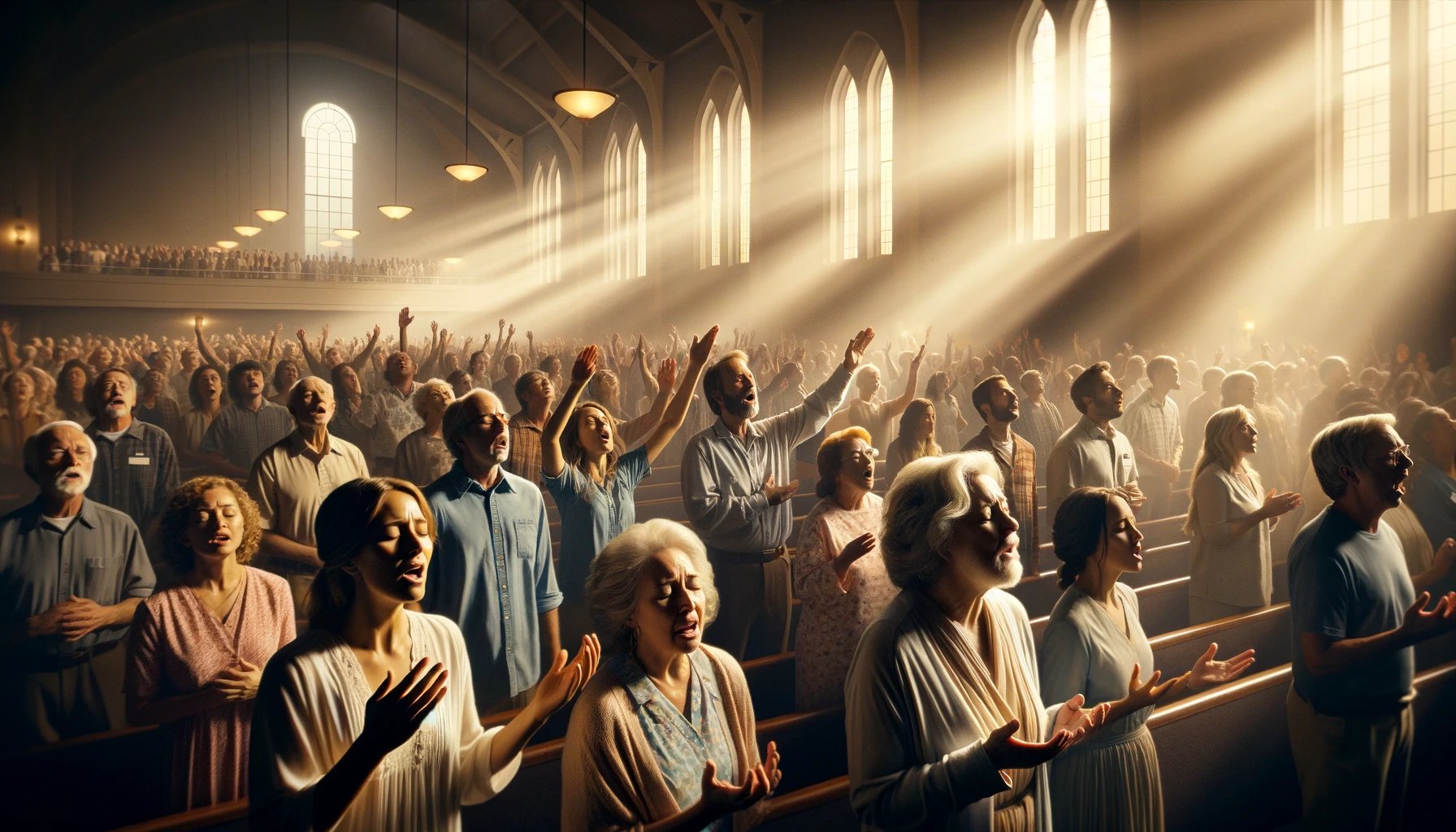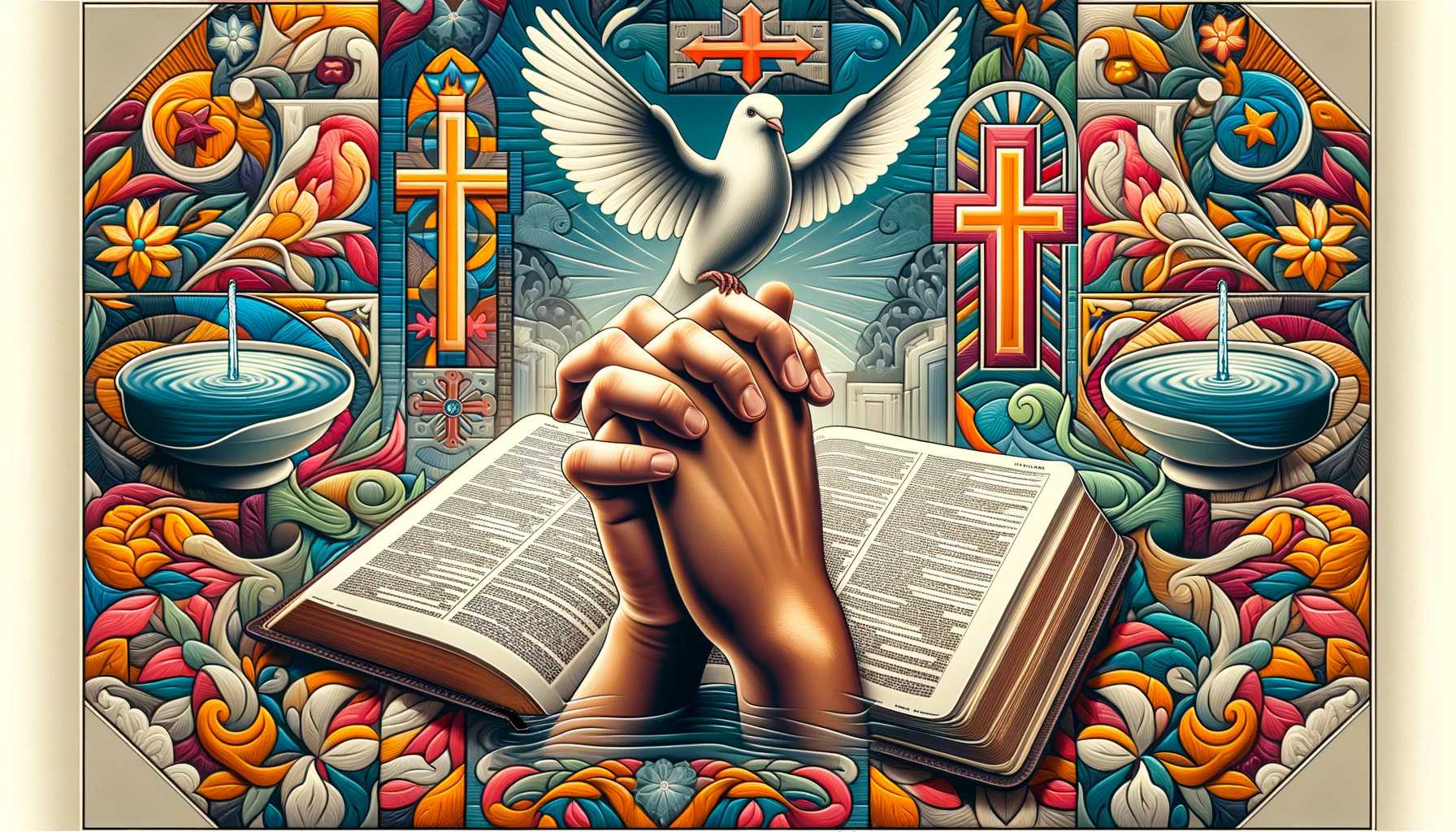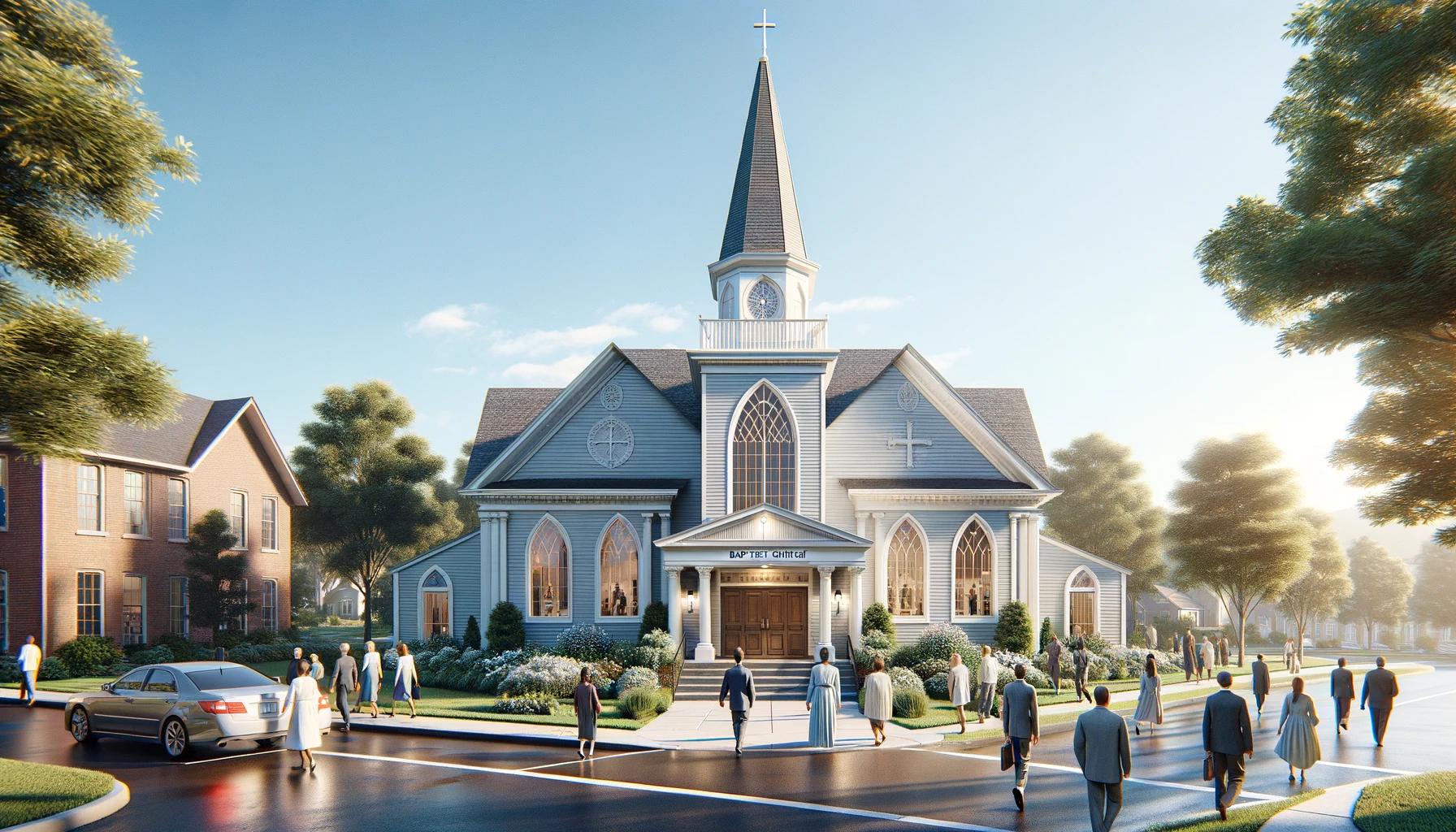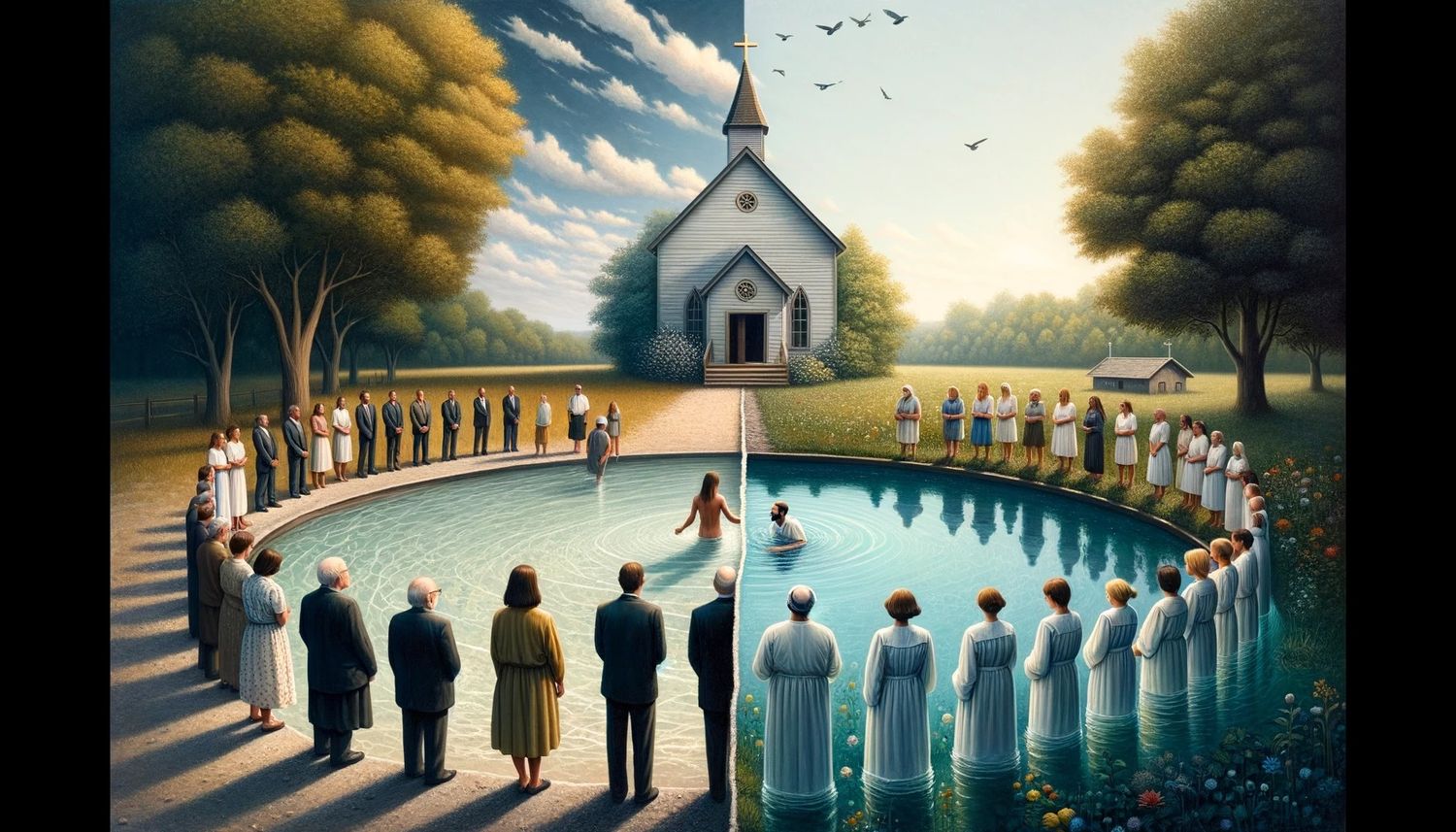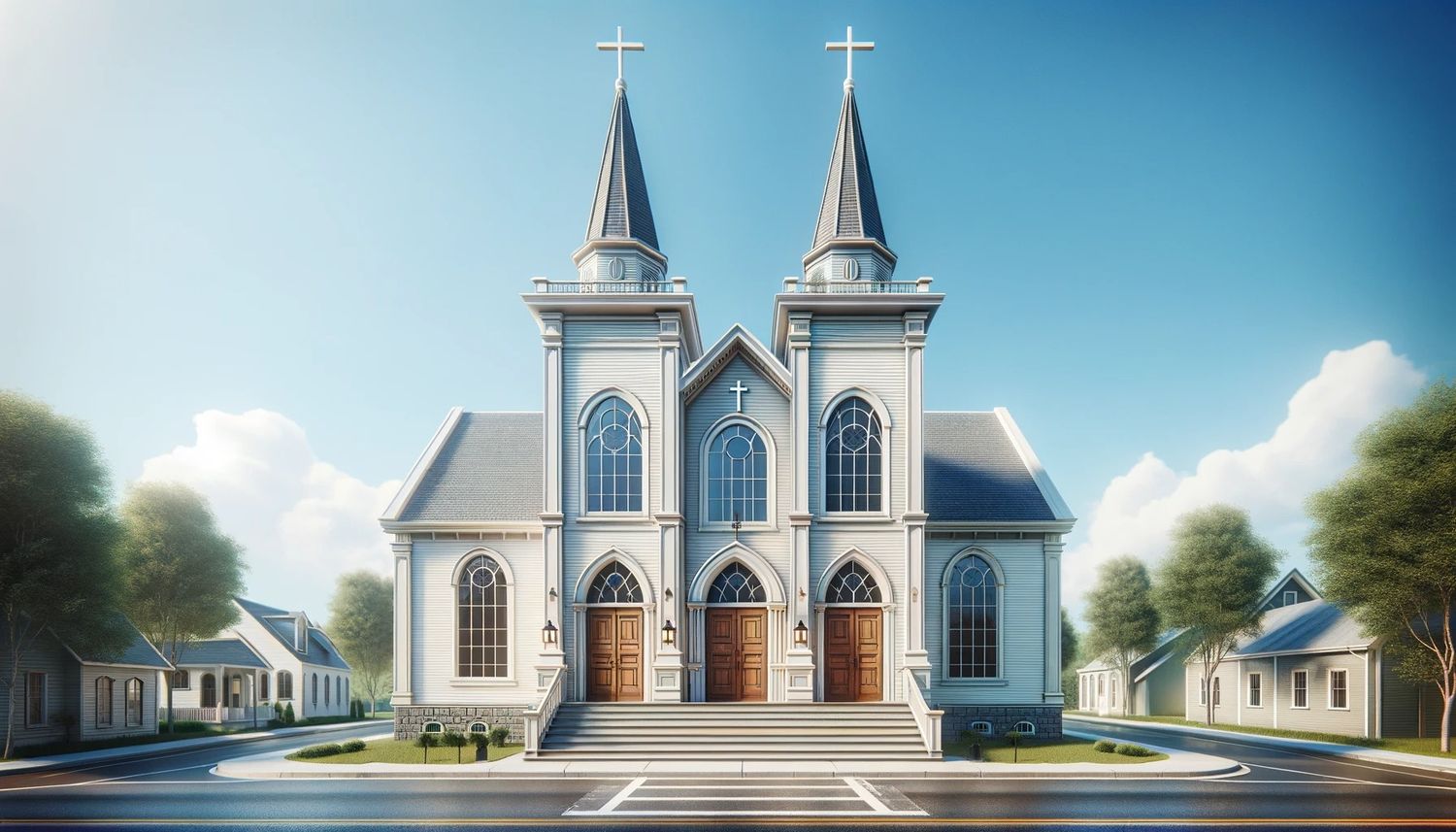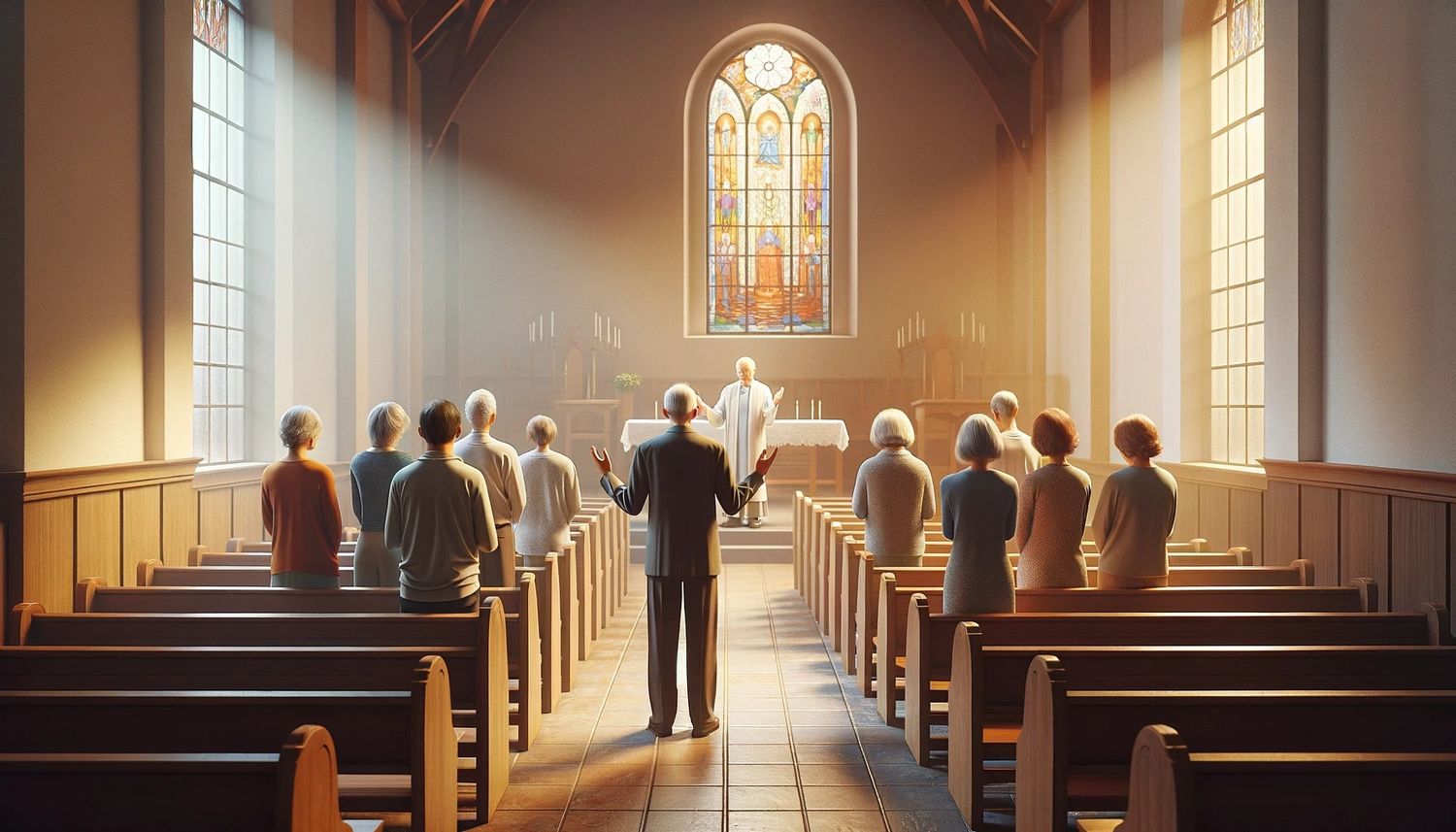Home>Theology and Spirituality>What Religion Is The Westboro Baptist Church
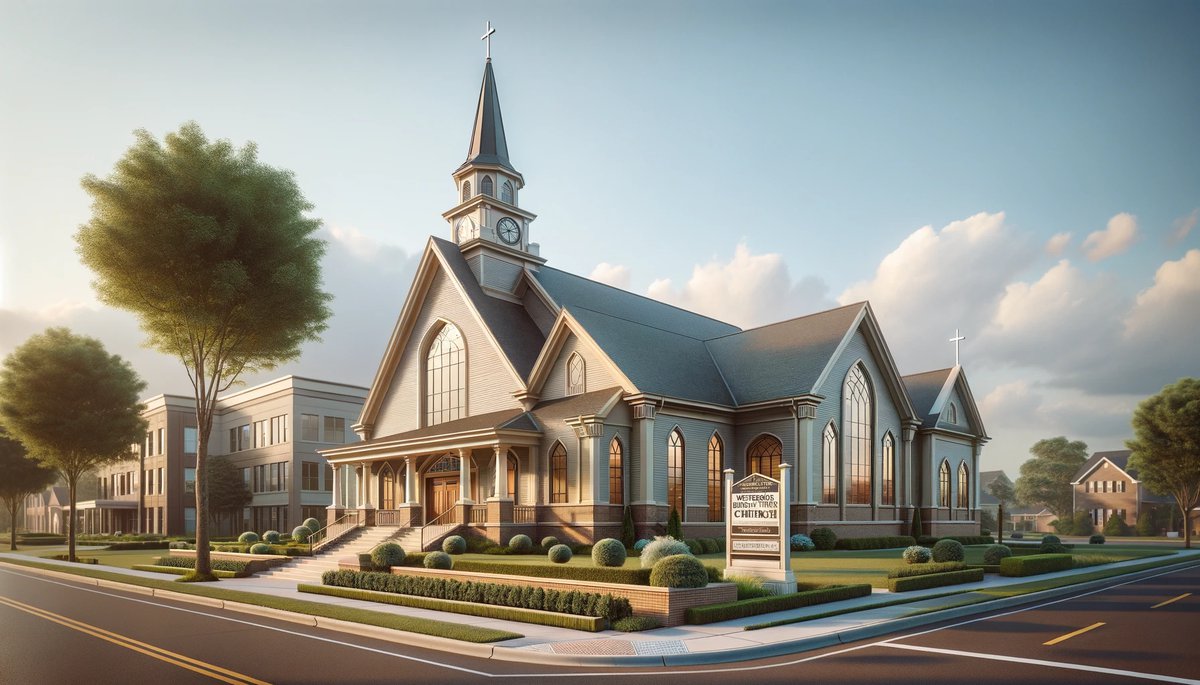

Theology and Spirituality
What Religion Is The Westboro Baptist Church
Published: February 22, 2024
Peter Smith, Editorial Director at Christian.net, combines deep insights into faith, politics, and culture to lead content creation that resonates widely. Awarded for his contributions to religious discourse, he previously headed a major organization for religious communicators, enhancing dialogue on faith's societal impacts.
Discover the controversial beliefs and practices of the Westboro Baptist Church, a group known for its extreme views on theology and spirituality. Explore their impact on modern religious discourse.
(Many of the links in this article redirect to a specific reviewed product. Your purchase of these products through affiliate links helps to generate commission for Christian.net, at no extra cost. Learn more)
Table of Contents
Introduction
The Westboro Baptist Church, based in Topeka, Kansas, has garnered widespread attention and sparked intense debate due to its controversial beliefs and practices. Founded in 1955 by Fred Phelps, the church has become notorious for its vehement opposition to homosexuality, as well as its picketing of military funerals and public events. Despite its small size, the Westboro Baptist Church has made a significant impact on public discourse, igniting discussions about the boundaries of religious freedom and the ethical implications of its actions.
The church's activities have often been met with public outrage and legal challenges, leading to a complex and contentious relationship with various communities and authorities. Understanding the history, beliefs, and controversies surrounding the Westboro Baptist Church is crucial for gaining insight into its motivations and the broader implications of its actions. This article will delve into the origins of the church, its core beliefs and practices, the controversies it has sparked, and its interactions with other religious groups. Through this exploration, we can gain a deeper understanding of the Westboro Baptist Church and the complex dynamics at play within its religious framework.
History of the Westboro Baptist Church
The history of the Westboro Baptist Church is deeply intertwined with the life and vision of its founder, Fred Phelps. In 1955, Phelps, a former civil rights attorney, established the church in Topeka, Kansas. Initially, the church operated within the parameters of mainstream Christianity, but over time, it evolved into a highly controversial and polarizing religious institution.
During the 1990s, the Westboro Baptist Church underwent a significant transformation under the leadership of Fred Phelps. The church began to espouse increasingly radical and inflammatory views, particularly regarding homosexuality. This shift marked the beginning of the church's notoriety and its emergence as a lightning rod for public outrage and condemnation.
The church's activities, including its infamous picketing campaigns and inflammatory slogans, have drawn widespread attention and condemnation. The church's picketing of military funerals and public events, often accompanied by provocative signs and chants, has sparked intense backlash and legal challenges.
Despite its small size, the Westboro Baptist Church has managed to amplify its message through the strategic use of media and public demonstrations. The church's confrontational approach has positioned it at the center of contentious debates about the limits of free speech, religious freedom, and the ethical responsibilities of religious organizations.
The history of the Westboro Baptist Church is marked by a trajectory of increasing controversy and notoriety. Its evolution from a relatively obscure religious group to a globally recognized symbol of extreme religious views has left a lasting impact on public discourse and legal precedents.
The church's history is a testament to the complex interplay between religious conviction, freedom of expression, and societal norms. Understanding the historical context of the Westboro Baptist Church is essential for comprehending the motivations and dynamics that have shaped its beliefs and actions.
Beliefs and Practices of the Westboro Baptist Church
The Westboro Baptist Church is characterized by a set of beliefs and practices that sharply distinguish it from mainstream Christian denominations. At the core of the church's doctrine is a fervent adherence to a strict interpretation of the Bible, particularly focusing on passages that address sin, judgment, and divine retribution. Central to the church's teachings is the conviction that contemporary society, including the broader Christian community, has deviated from the true teachings of the Bible, leading to widespread moral decay and divine displeasure.
The church's stance on homosexuality is perhaps its most widely recognized belief. It vehemently condemns homosexuality as a grave sin and a primary cause of societal ills. This uncompromising position has led to the church's notorious picketing campaigns at events and locations associated with the LGBTQ+ community, as well as its provocative slogans and signs that denounce homosexuality in the harshest terms.
In addition to its stance on homosexuality, the Westboro Baptist Church holds a deterministic view of divine judgment, asserting that natural disasters, acts of violence, and other calamities are manifestations of God's wrath upon a sinful world. This belief underpins the church's controversial practice of picketing funerals, including those of military service members, as a means of highlighting what it perceives as divine retribution for societal acceptance of homosexuality and other perceived sins.
The church's practices, including its picketing activities and incendiary rhetoric, are driven by a fervent conviction that it is mandated to serve as a vocal and confrontational messenger of God's judgment. This uncompromising approach has positioned the Westboro Baptist Church as a lightning rod for public outrage and legal challenges, while also sparking profound debates about the boundaries of free speech and the responsibilities of religious organizations.
The beliefs and practices of the Westboro Baptist Church reflect a deeply entrenched worldview that is at odds with prevailing societal norms and values. Its unyielding adherence to its interpretation of biblical teachings has led to a legacy of controversy and condemnation, while also raising complex questions about the intersection of religious conviction, freedom of expression, and social responsibility. Understanding the beliefs and practices of the Westboro Baptist Church is essential for comprehending the motivations and impact of this polarizing religious institution.
Controversies and Criticisms
The Westboro Baptist Church has been embroiled in a myriad of controversies and has faced vehement criticisms from various quarters due to its provocative actions and inflammatory rhetoric. One of the most contentious aspects of the church's activities is its picketing of military funerals, where members display signs with incendiary slogans condemning homosexuality and attributing military casualties to divine retribution. This practice has evoked widespread outrage and has been condemned as deeply disrespectful to the families of the deceased and to the broader military community.
Furthermore, the church's confrontational approach to public demonstrations, often targeting high-profile events and locations, has sparked intense backlash and legal challenges. Its use of inflammatory language and graphic imagery has been met with accusations of hate speech and has prompted efforts to restrict the church's activities. These controversies have raised complex ethical and legal questions regarding the boundaries of free speech and the responsibilities of religious organizations in a pluralistic society.
The Westboro Baptist Church's uncompromising stance on homosexuality has also drawn sharp criticism from advocacy groups, religious leaders, and the general public. Its portrayal of LGBTQ+ individuals as inherently sinful and deserving of condemnation has been widely denounced as discriminatory and harmful. The church's provocative messaging and public demonstrations have been met with counter-protests and efforts to counter its narrative with messages of love and inclusivity.
Moreover, the church's interactions with the legal system, including numerous lawsuits and legal challenges, have further fueled controversies and criticisms. While the church has often invoked its right to free speech and religious expression in defense of its actions, its confrontational tactics have tested the limits of legal protections and have prompted ongoing debates about the balance between religious freedom and the prevention of harm and harassment.
The controversies and criticisms surrounding the Westboro Baptist Church underscore the profound societal divisions and ethical dilemmas it has engendered. Its actions have ignited passionate debates about the boundaries of religious freedom, the impact of hate speech, and the responsibilities of religious institutions in a diverse and interconnected world. The church's notoriety and the controversies it has generated continue to provoke reflection and dialogue on the complex intersections of faith, speech, and social ethics.
Relationship with Other Religious Groups
The Westboro Baptist Church's relationship with other religious groups is marked by profound tension and discord. Its uncompromising stance on various social and moral issues, particularly its vehement condemnation of homosexuality, has positioned the church in direct opposition to the beliefs and practices of numerous religious denominations and faith communities.
The church's confrontational approach to public demonstrations and its use of incendiary rhetoric have elicited strong reactions from other religious groups, many of which have unequivocally denounced the Westboro Baptist Church's messaging and actions. Mainstream Christian denominations, including Protestant, Catholic, and Orthodox traditions, have consistently distanced themselves from the church, emphasizing their commitment to inclusivity, compassion, and respect for all individuals, regardless of sexual orientation.
Interfaith organizations and religious leaders representing diverse faith traditions have also expressed deep concern over the church's divisive rhetoric and its impact on interreligious relations. The Westboro Baptist Church's provocative picketing campaigns and inflammatory messaging have been viewed as antithetical to the principles of dialogue, understanding, and cooperation that underpin interfaith efforts worldwide.
Furthermore, the church's picketing of religious institutions and events, as well as its portrayal of divine retribution in response to societal acceptance of homosexuality, has strained its relationships with other religious groups. The Westboro Baptist Church's portrayal of itself as a solitary voice of divine truth has been met with skepticism and rejection by the broader religious community, which has emphasized the importance of humility, empathy, and mutual respect in interfaith engagement.
Despite the widespread condemnation and opposition it has encountered from other religious groups, the Westboro Baptist Church has remained steadfast in its convictions, often framing its confrontational approach as a necessary expression of divine mandate. This uncompromising stance has further entrenched the church's isolation from the broader religious landscape, reinforcing the deep divisions that characterize its relationships with other faith communities.
The Westboro Baptist Church's relationship with other religious groups serves as a stark illustration of the profound rifts that can emerge within the religious tapestry of society. Its confrontational and divisive tactics have underscored the challenges of fostering mutual understanding and cooperation across diverse religious traditions, while also highlighting the enduring complexities of religious pluralism and coexistence.
Read more: Why The Westboro Baptist Church Protests
Conclusion
The Westboro Baptist Church stands as a striking example of a religious institution that has ignited intense debates, controversies, and criticisms due to its uncompromising beliefs and confrontational practices. Founded in 1955 by Fred Phelps, the church has undergone a transformation from a relatively obscure religious group to a globally recognized symbol of extreme religious views. Its vehement opposition to homosexuality, provocative picketing campaigns, and confrontational rhetoric have positioned it at the center of contentious discussions about the boundaries of religious freedom, hate speech, and the responsibilities of religious organizations in contemporary society.
The church's history is marked by a trajectory of increasing controversy and notoriety, with its confrontational approach sparking profound debates about the limits of free speech, religious freedom, and the ethical responsibilities of religious organizations. Its unyielding adherence to its interpretation of biblical teachings has led to a legacy of controversy and condemnation, while also raising complex questions about the intersection of religious conviction, freedom of expression, and social responsibility.
The controversies and criticisms surrounding the Westboro Baptist Church underscore the profound societal divisions and ethical dilemmas it has engendered. Its actions have ignited passionate debates about the boundaries of religious freedom, the impact of hate speech, and the responsibilities of religious institutions in a diverse and interconnected world. The church's notoriety and the controversies it has generated continue to provoke reflection and dialogue on the complex intersections of faith, speech, and social ethics.
Furthermore, the church's relationship with other religious groups has been marked by profound tension and discord, as its uncompromising stance on various social and moral issues has positioned it in direct opposition to the beliefs and practices of numerous religious denominations and faith communities. Its confrontational approach and divisive rhetoric have strained its relationships with other religious groups, highlighting the enduring complexities of religious pluralism and coexistence.
In conclusion, the Westboro Baptist Church serves as a compelling case study for examining the intricate dynamics of religious conviction, freedom of expression, and societal impact. Its notoriety and the controversies it has generated underscore the enduring complexities and challenges inherent in navigating the intersections of faith, speech, and social ethics in a diverse and interconnected world.
